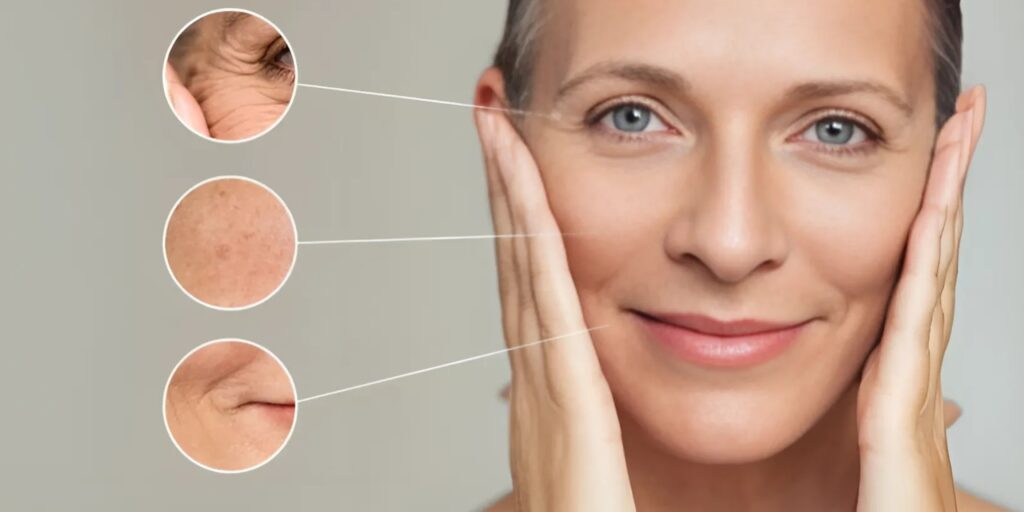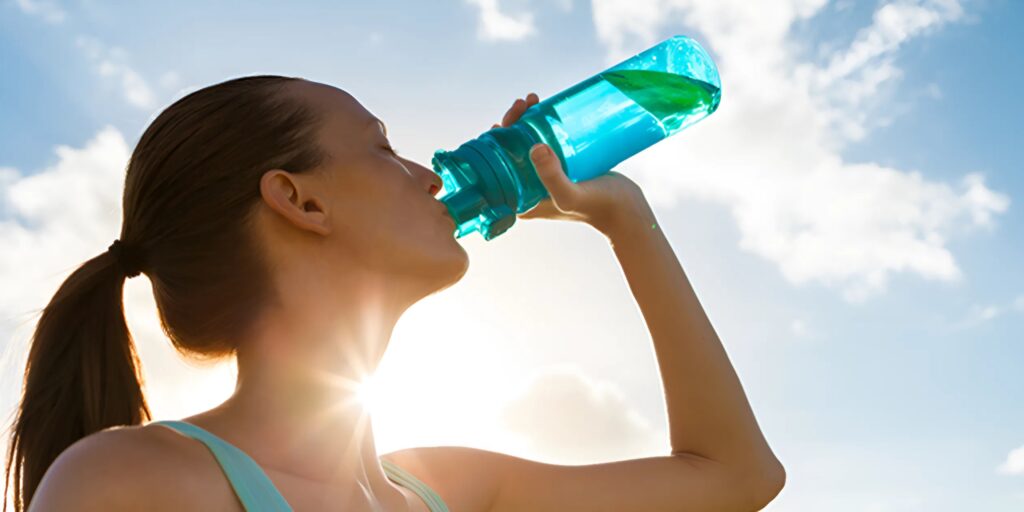
Are you troubled by wrinkles? Worry not! Drawing from my extensive training and first-hand experience over a career spanning more than 14 years, I, Isha Sirohi, am here to share solutions to this common skin problem. Here are a few simple tips that you can easily follow to reduce the appearance of wrinkles.
Sun Protection

UV radiation from the sun damages the skin’s collagen and elastin fibers, leading to wrinkles and sagging. Using a broad-spectrum sunscreen with SPF 30 or higher helps protect your skin from these harmful effects. Reapply sunscreen every two hours, especially if you’re swimming or sweating.
Hydration

Proper hydration is essential for maintaining skin elasticity and suppleness. Drinking an adequate amount of water throughout the day keeps your skin hydrated from the inside out, preventing it from becoming dry and prone to wrinkles.
We all know how it feels not to be properly hydrated. From experiencing thirst to feeling sluggish to noticing that you don’t need to urinate as frequently as usual, it’s clear that being dehydrated can negatively affect how we feel and move through the day.
While drinking enough fluid is key to helping us feel our best, less of a focus is placed on the importance of cellular hydration, or having enough fluid in the cells to allow them to do their job.
Healthy Diet

A balanced diet rich in antioxidants, vitamins, and minerals is crucial for skin health. Antioxidants like vitamins C and E help neutralize free radicals, which can damage skin cells and accelerate aging. Foods such as berries, citrus fruits, leafy greens, and nuts are excellent sources of these nutrients.
A healthy diet includes a balance of protein, fat, carbohydrates, fiber, vitamins, and minerals. Here are some tips for healthy eating:
- Eat a variety of fruits and vegetables: These are a great source of vitamins, minerals, and fiber. Different fruits and vegetables provide different nutrients.
- Eat protein: Protein is an essential nutrient that supports a healthy weight and body.
- Eat whole grains: Whole grains are a good source of fiber, which can help with digestion and weight management. They can also help reduce the risk of heart disease and Type 2 diabetes.
- Eat dairy products: Dairy products can help with bone and dental health and may protect against hypertension.
- Eat nuts: Nuts are a good source of healthy fats, minerals, and nutrients. However, they are high in calories, so you should eat them in moderation.
- Reduce saturated fat and sugar: Try to cut down on these in your diet.
- Eat less salt: Adults should try to eat no more than 6 grams of salt per day.
- Stay active: Try to maintain a healthy weight and be active.
- Drink enough fluids: Don’t get thirsty.
- Don’t skip breakfast: Try not to skip breakfast.
Quit Smoking

Smoking not only causes wrinkles around the mouth from repeated puckering but also reduces blood flow to the skin, resulting in a dull complexion and premature aging. Quitting smoking can significantly improve the appearance of wrinkles and overall skin health.
Quitting smoking is beneficial for your health at any time. It reduces the risk of diseases such as heart disease, cancer, and lung disease, and can improve both physical and mental health within a few weeks of stopping. Methods like nicotine replacement therapy and avoiding triggers can help manage cravings
Moisturization
As we age, our skin produces less oil, leading to dryness and increased visibility of wrinkles. Using a moisturizer regularly helps replenish lost moisture, making wrinkles appear less prominent. Look for moisturizers containing hyaluronic acid, which attracts and retains water in the skin, keeping it hydrated and plump.
Retinoids
Retinoids, available in both prescription and over-the-counter formulations, are one of the most effective treatments for reducing wrinkles. They work by stimulating collagen production, increasing cell turnover, and improving skin texture. Start with a low concentration and gradually increase to minimize potential irritation.
Topical Treatments
Skincare products containing peptides, vitamin C, and alpha hydroxy acids (AHAs) or beta hydroxy acids (BHAs) can help improve the appearance of wrinkles. Peptides stimulate collagen synthesis, vitamin C brightens the skin and promotes collagen production, while AHAs and BHAs exfoliate the skin, reducing the appearance of fine lines and wrinkles.
Facial Exercises
Facial exercises involve repetitive movements targeted at specific facial muscles to tone and tighten them, potentially reducing the appearance of wrinkles. However, scientific evidence supporting their efficacy is limited, and results may vary from person to person.
Medical Treatments
For more pronounced wrinkles, various medical treatments are available. Chemical peels, microdermabrasion, and laser therapy can resurface the skin, improving its texture and reducing wrinkles. Injectable fillers like hyaluronic acid or botulinum toxin (Botox) can temporarily smooth out wrinkles by adding volume or relaxing muscles.
During sleep, the body repairs and regenerates tissues, including the skin. Lack of sleep can lead to increased cortisol levels, which can break down collagen and elastin, contributing to the formation of wrinkles. Aim for 7-9 hours of sleep daily to support skin health and overall well-being.
More articles are coming up on other skin problems. Stay tuned for my next piece on skin darkening, pigmentation, and more. To keep yourself updated and always looking your best, follow my Instagram page.
Until next time, stay beautiful and take care!
